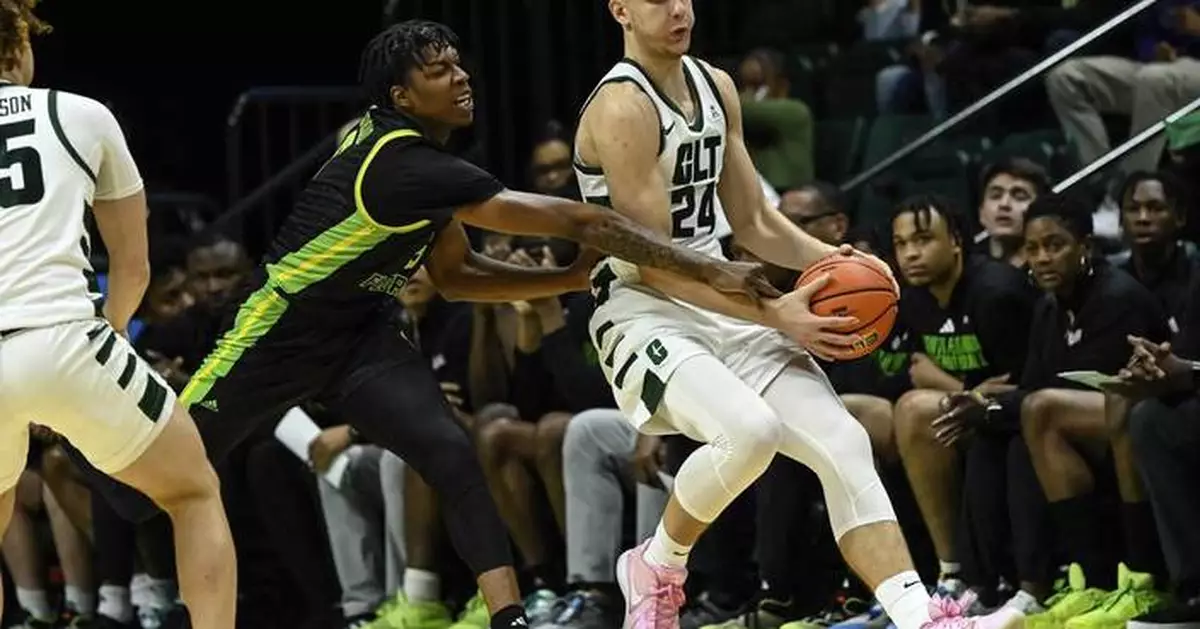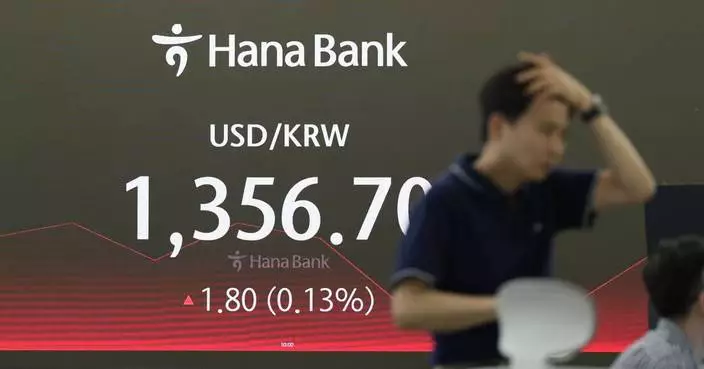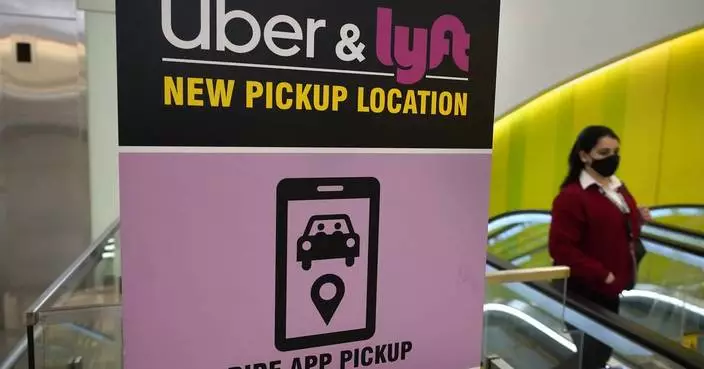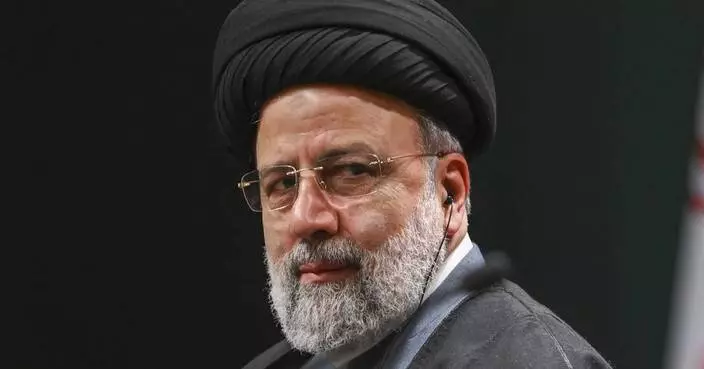The NCAA has approved a waiver that will allow men's and women's basketball programs to pay for unlimited official recruiting visits to help teams deal with roster depletion caused by transfers, according to a memo obtained Thursday by The Associated Press.
The Athletic first reported the approval of a blanket waiver by the men's and women's basketball oversight committees.
Currently, men's basketball programs are allowed 28 official visits over a rolling two-year period. The number for women's programs is 24.
The waiver will cover a two-year period, starting Aug. 1, 2023, and run through July 31, 2025. The NCAA Division I Council in June will consider proposed legislation that would lift the limit on official visits in men's and women's basketball permanently.
Last month, the NCAA changed its rules to allow all athletes to be immediately eligible to play no matter how many times they transfer — as long as they meet academic requirements. The move came after the association fast-tracked legislation to fall in line with a recent court order.
Several states, including West Virginia, sued the NCAA late last year, challenging rules requiring undergraduate athletes to sit out for a season if they transferred more than once.
With what amounts to unlimited and unrestricted transfers, player movement in basketball has increased and forced programs into a bind created by unusually high levels of roster turnover.
In some cases, coaches are replacing almost an entire team. The scholarship limit in Division I for men's basketball is 13 and 15 for women's teams.
AP Sports https://apnews.com/sports
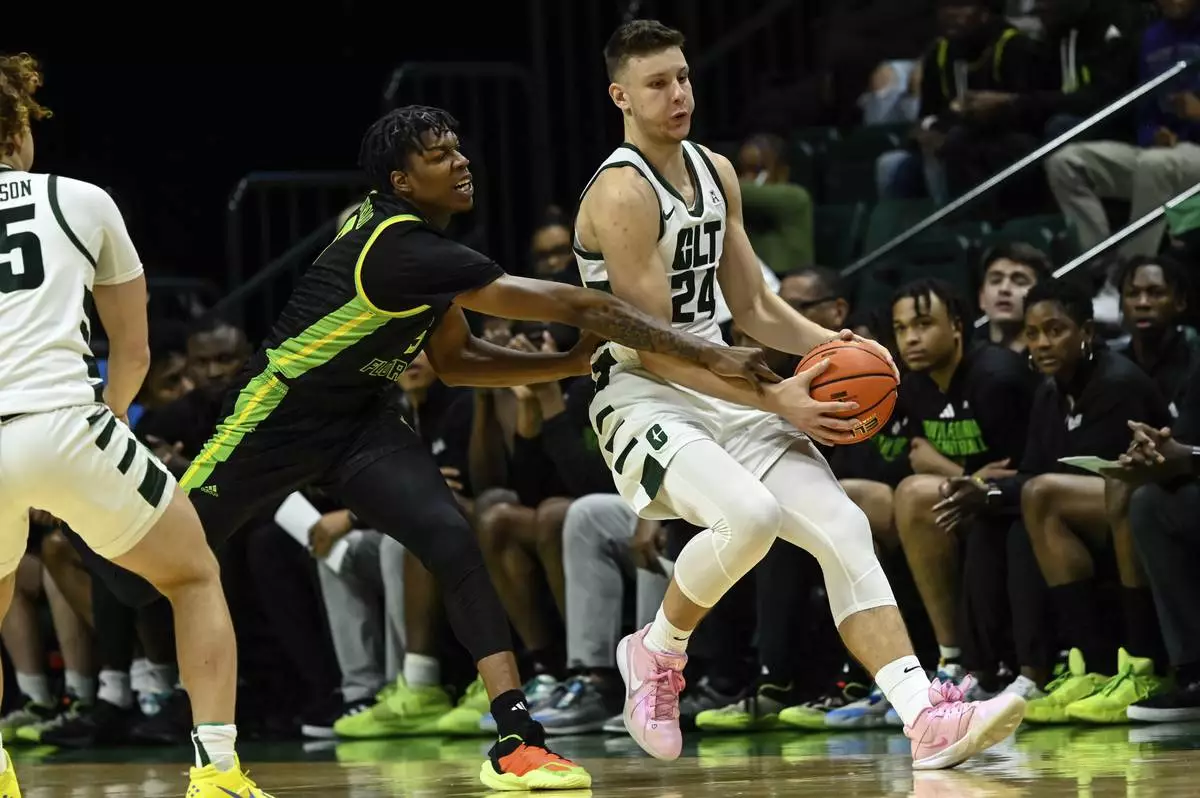
FILE - South Florida guard Brandon Stroud attempts to knock the ball away from Charlotte forward Igor Milicic Jr. (24) during the first half of an NCAA college basketball game on Saturday, March 2, 2024, in Charlotte, N.C. Miličić Jr., one of the top big men in the American Athletic Conference at Charlotte last season, will play his final year at Tennessee. Volunteers coach Rick Barnes on Thursday, May 9, announced the addition of Miličić, who becomes the third transfer to join the team for 2024-25. (AP Photo/Matt Kelley, File)
LONDON (AP) — WikiLeaks founder Julian Assange faced a hearing Monday in the High Court in London that could end with him being sent to the U.S. to face espionage charges, or could provide him another chance to appeal his extradition.
The outcome will depend on how much weight judges give to assurances U.S. officials have provided that Assange’s rights won’t be trampled if he goes on trial.
In March, two judges rejected the bulk of Assange's arguments but said he could take his case to the Court of Appeal unless the U.S. guaranteed he would not face the death penalty if extradited and would have the same free speech protections as a U.S. citizen.
The court said that if Assange, who is an Australian citizen, couldn’t rely on the First Amendment then it was arguable his extradition would be incompatible with the European Convention on Human Rights, which also provides free speech and media protections.
The U.S. has provided those reassurances, though Assange's legal team and supporters argue they are not good enough to rely on to send him to the U.S. federal court system.
The U.S. said Assange could seek to rely on the rights and protections of the First Amendment but that a decision on that would ultimately be up to a judge. In the past, the U.S. said it would argue at trial that Assange is not entitled to the constitutional protection because he is not a U.S. citizen.
“The U.S. has limited itself to blatant weasel words claiming that Julian can ‘seek to raise’ the First Amendment if extradited,” his wife, Stella Assange, said. "The diplomatic note does nothing to relieve our family’s extreme distress about his future — his grim expectation of spending the rest of his life in isolation in U.S. prison for publishing award-winning journalism.”
Assange, 52, has been indicted on 17 espionage charges and one charge of computer misuse over his website’s publication of a trove of classified U.S. documents almost 15 years ago. American prosecutors allege that Assange encouraged and helped U.S. Army intelligence analyst Chelsea Manning to steal diplomatic cables and military files that WikiLeaks published.
Commuters emerging from a Tube stop near the courthouse couldn’t miss a large sign bearing Assange’s photo and the words, “Publishing is not a crime. War crimes are.” Scores of supporters gathered outside the neo-Gothic Royal Courts of Justice chanting “Free Julian Assange” and “Press freedom, Assange freedom.”
Some held a large white banner aimed at President Joe Biden, exhorting: “Let him go Joe.”
Assange's lawyers say he could face up to 175 years in prison if convicted, though American authorities have said any sentence would likely be much shorter.
Assange’s family and supporters say his physical and mental health have suffered during more than a decade of legal battles, which includes seven years spent inside the Ecuadorian Embassy in London from 2012 until 2019. He has spent the past five years in a British high-security prison.
Assange’s lawyers argued in February that he was a journalist who exposed U.S. military wrongdoing in Iraq and Afghanistan. Sending him to the U.S., they said, would expose him to a politically motivated prosecution and risk a “flagrant denial of justice.”
The U.S. government says Assange's actions went way beyond those of a journalist gathering information, amounting to an attempt to solicit, steal and indiscriminately publish classified government documents.
If Assange prevails Monday, it would set the stage for an appeal process likely to extend what has already been a long legal saga.
If the court accepts the word of the U.S., it would mark the end of Assange’s legal challenges in the U.K., though it’s unclear what would immediately follow.
His legal team is prepared to ask the European Court of Human Rights to intervene. But his supporters fear Assange could be transferred before the court in Strasbourg, France, could halt his removal.
Judges Victoria Sharp and Jeremy Johnson may also postpone issuing a decision.
If Assange loses in court, he still may have another shot at freedom.
Biden said last month that he was considering a request from Australia to drop the case and let Assange return to his home country.
Officials provided no other details but Stella Assange said it was “a good sign” and Australian Prime Minister Anthony Albanese said the comment was encouraging.

FILE - WikiLeaks founder Julian Assange being taken from court, where he appeared on charges of jumping British bail seven years ago, in London, Wednesday May 1, 2019. Assange faces what could be his final court hearing in England over whether he should be extradited to the United States to face spying charges. (AP Photo/Matt Dunham, File)

London court to decide whether WikiLeaks founder Assange is extradited to the US

London court to decide whether WikiLeaks founder Assange is extradited to the US



